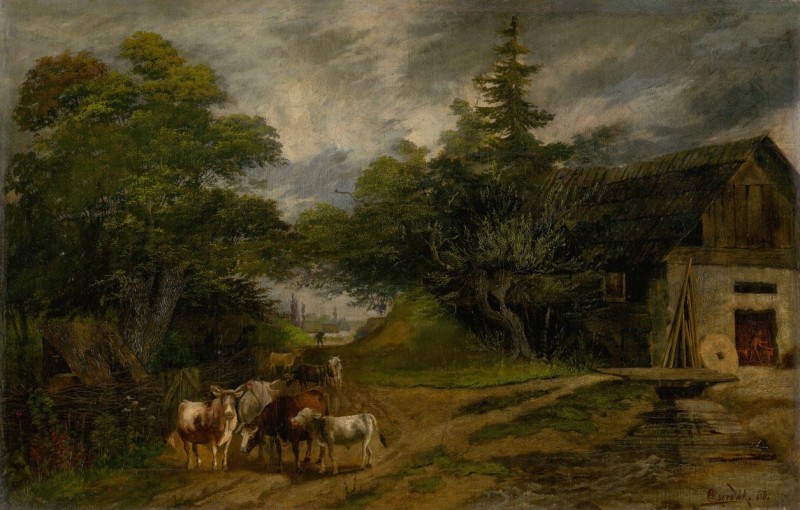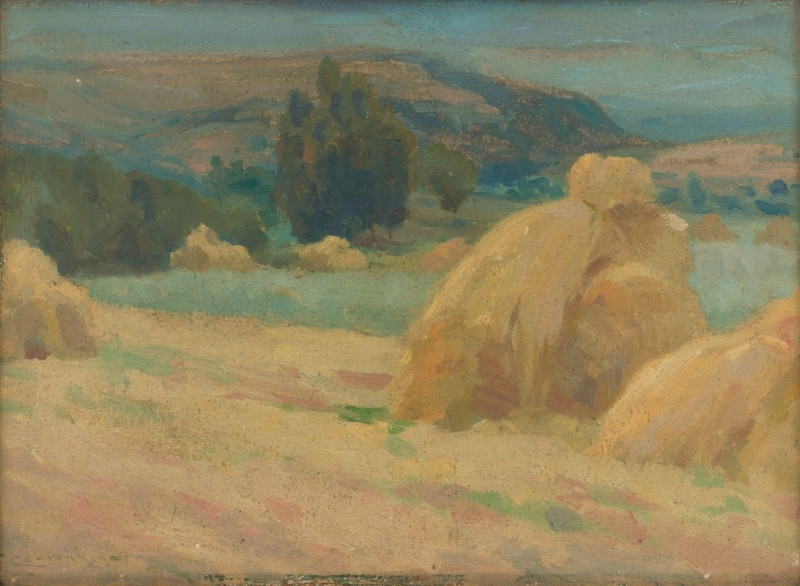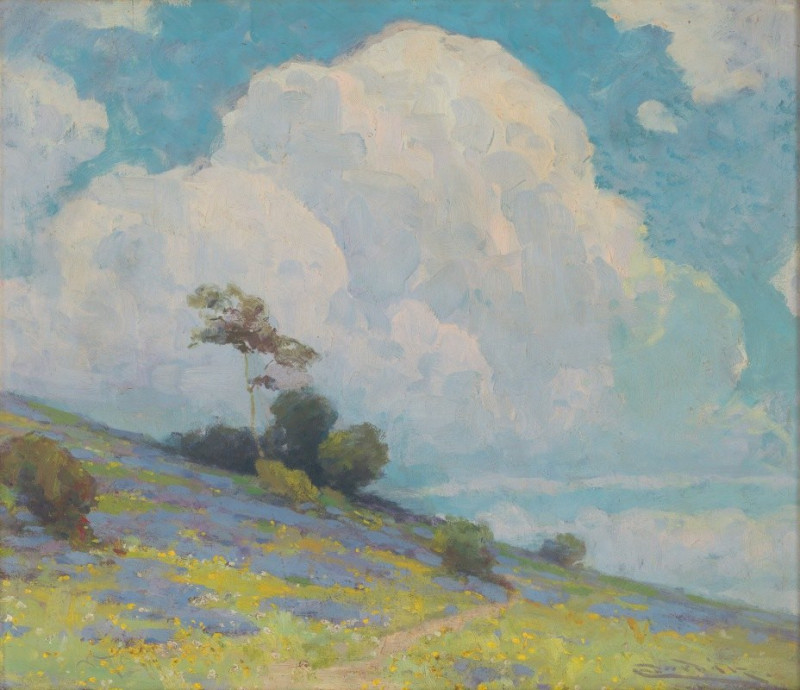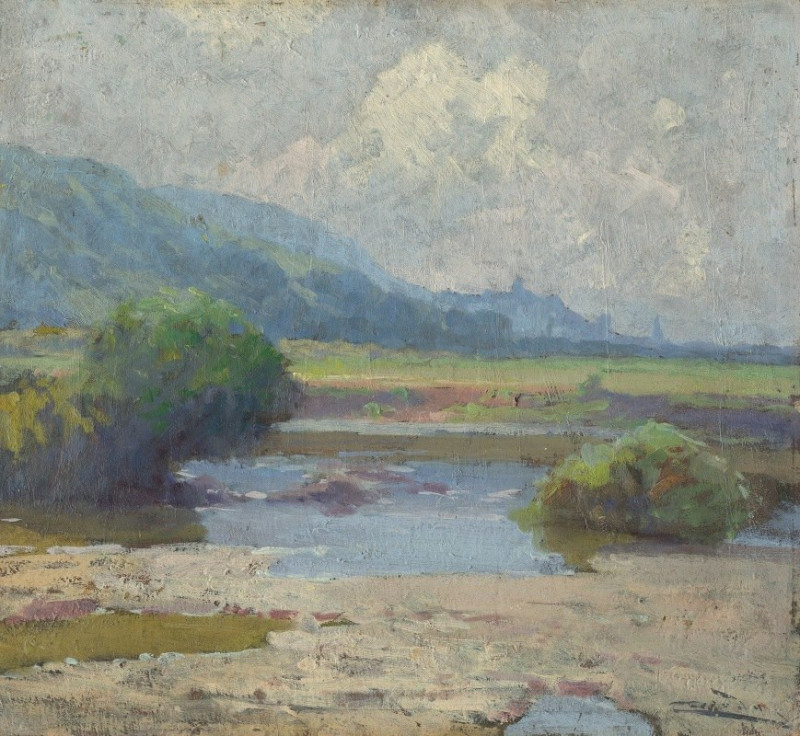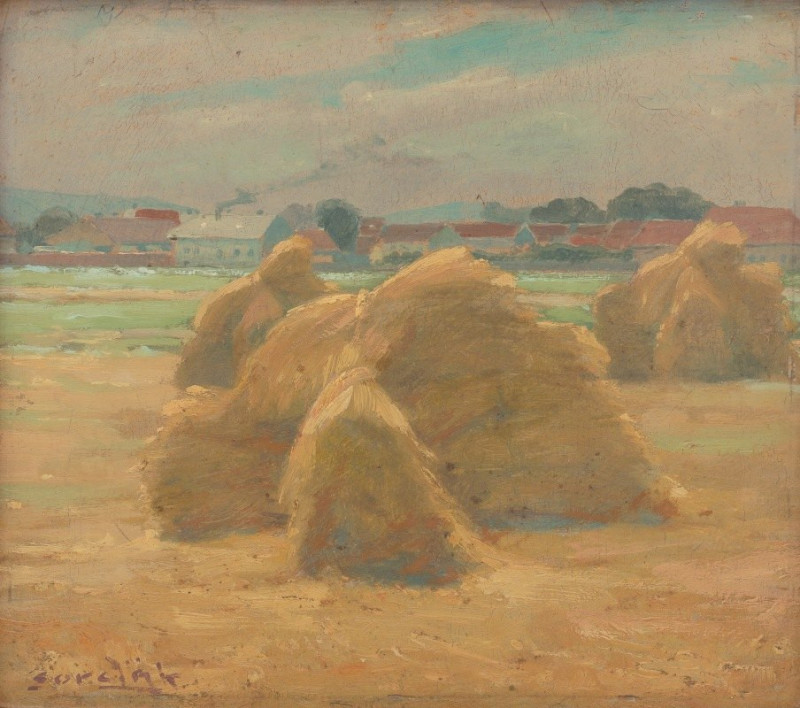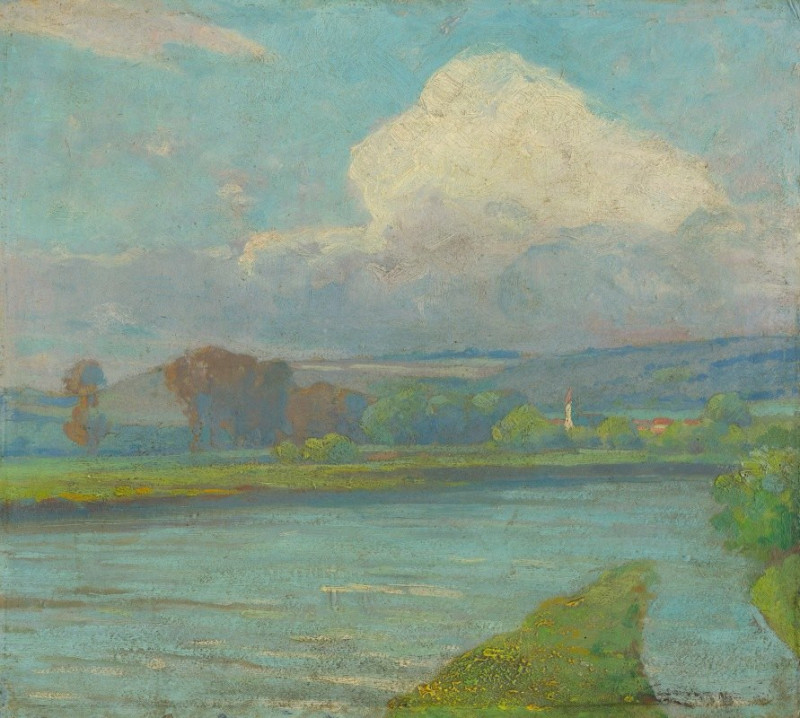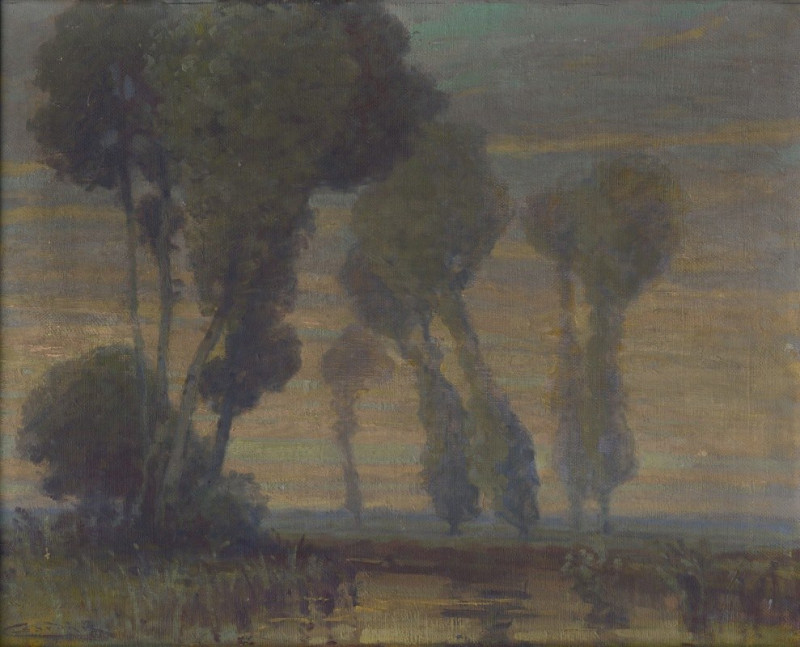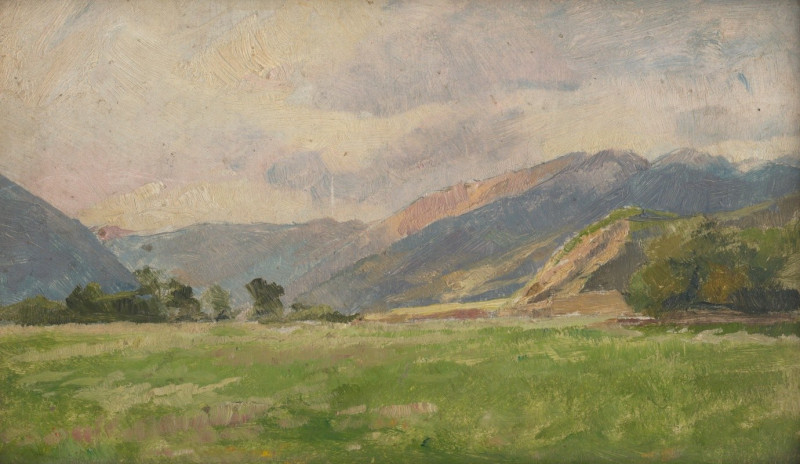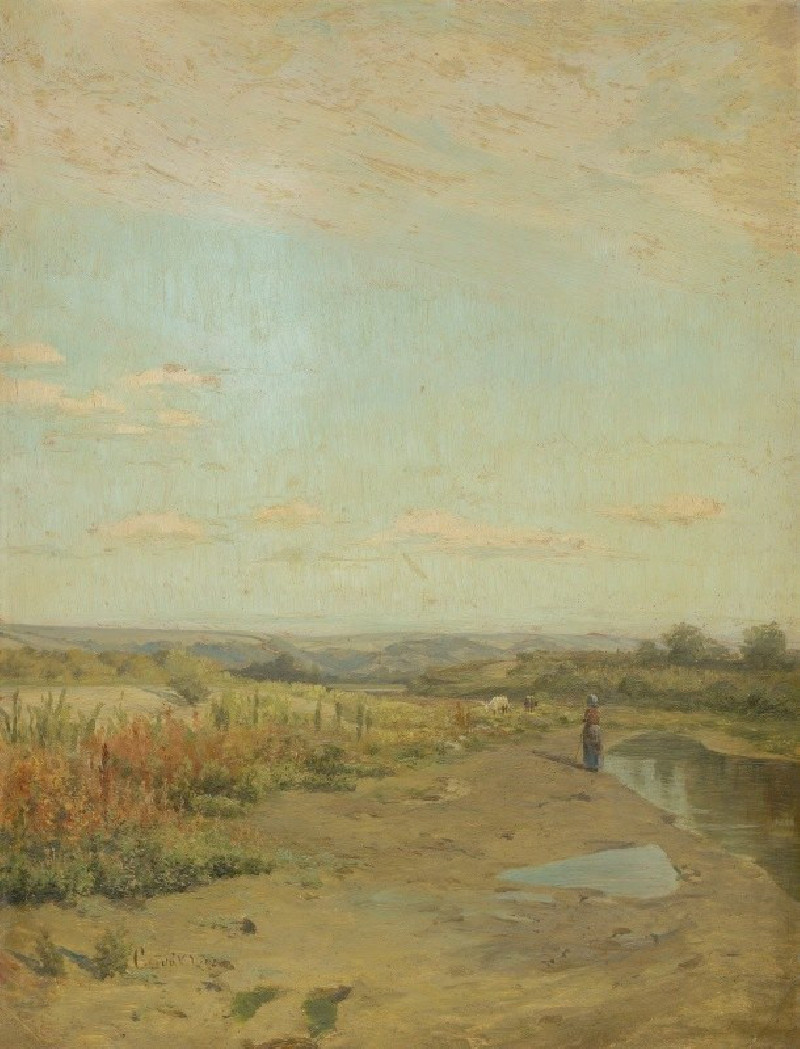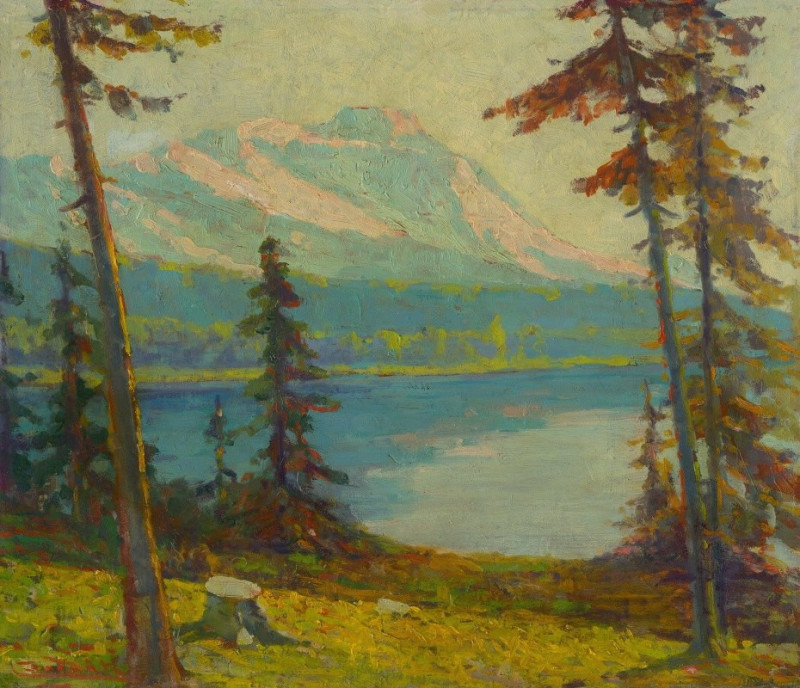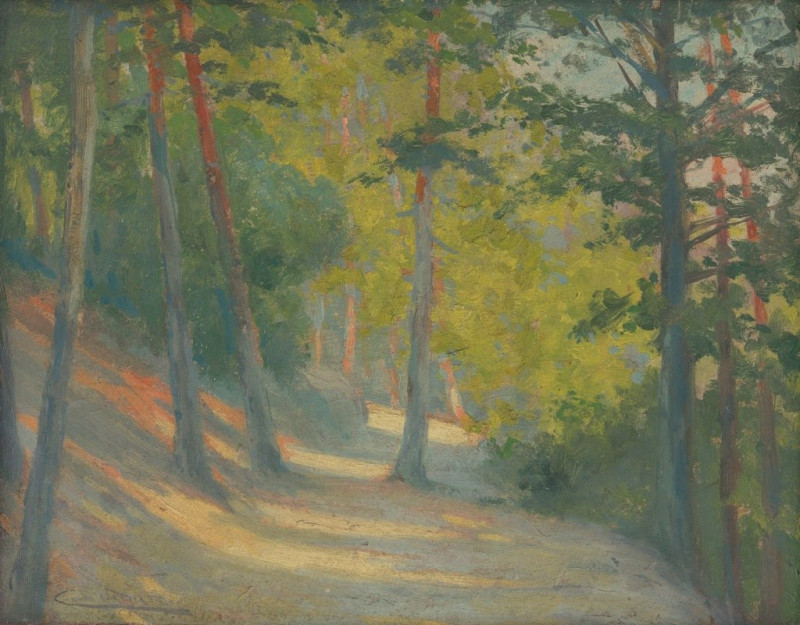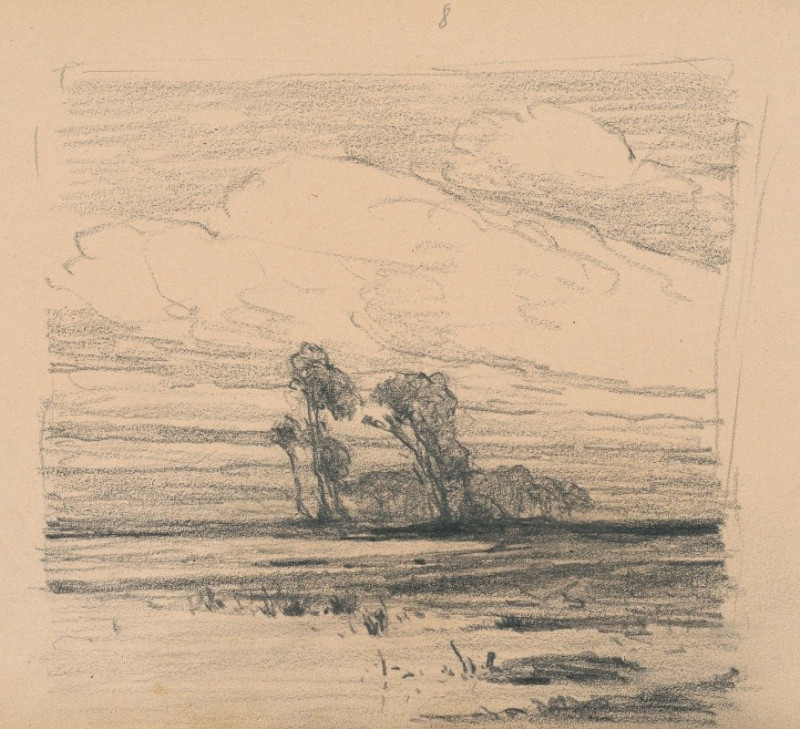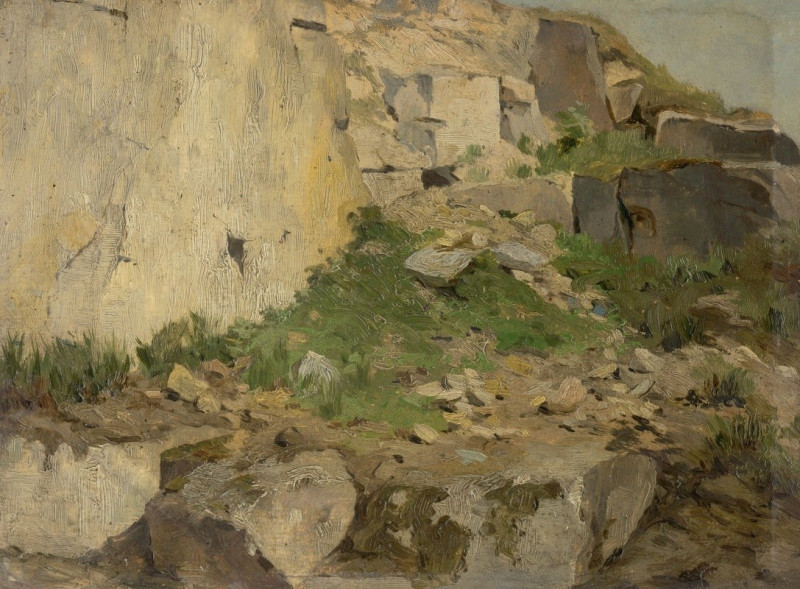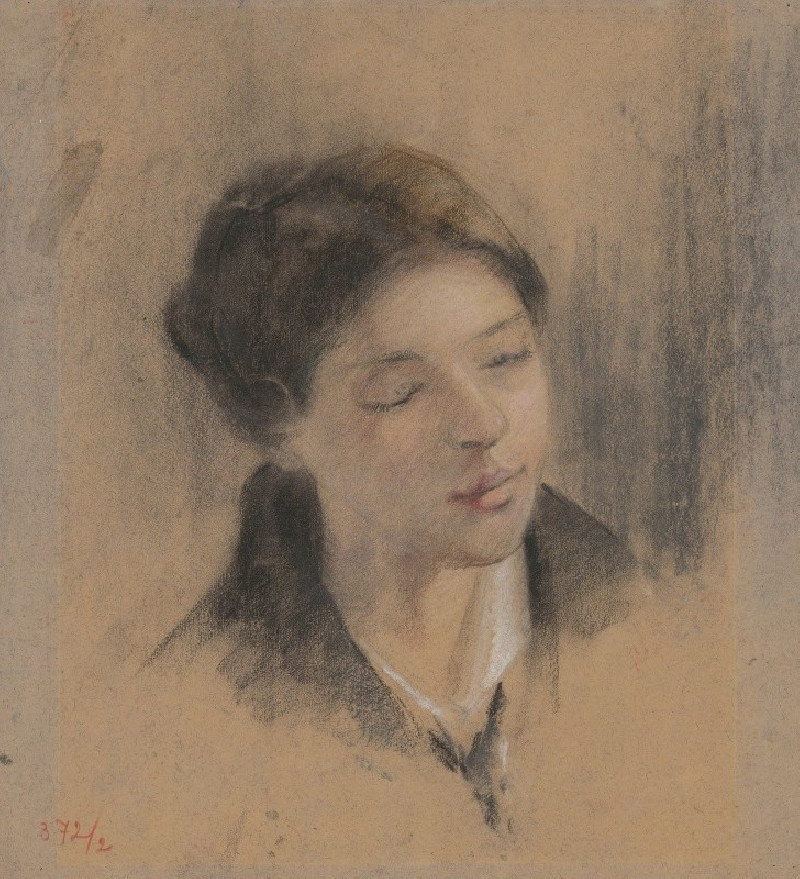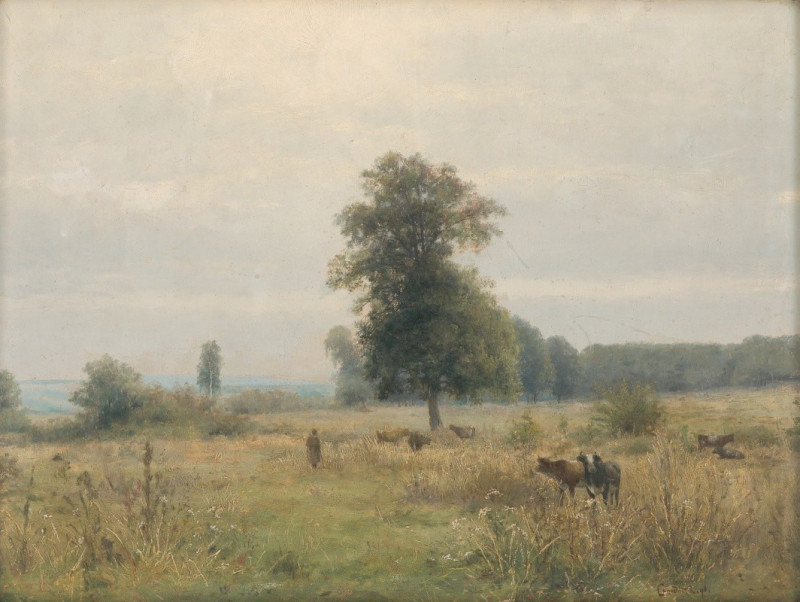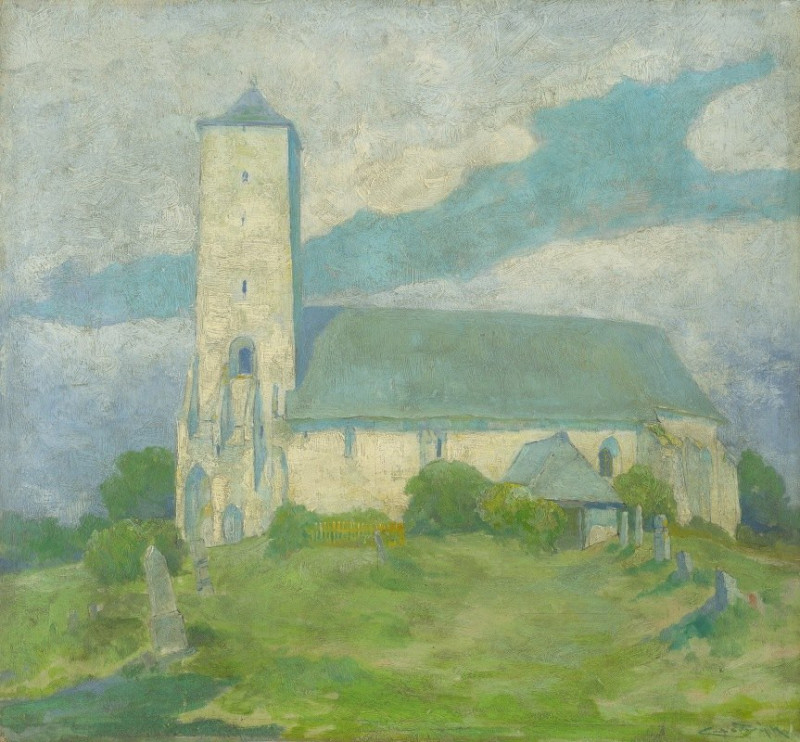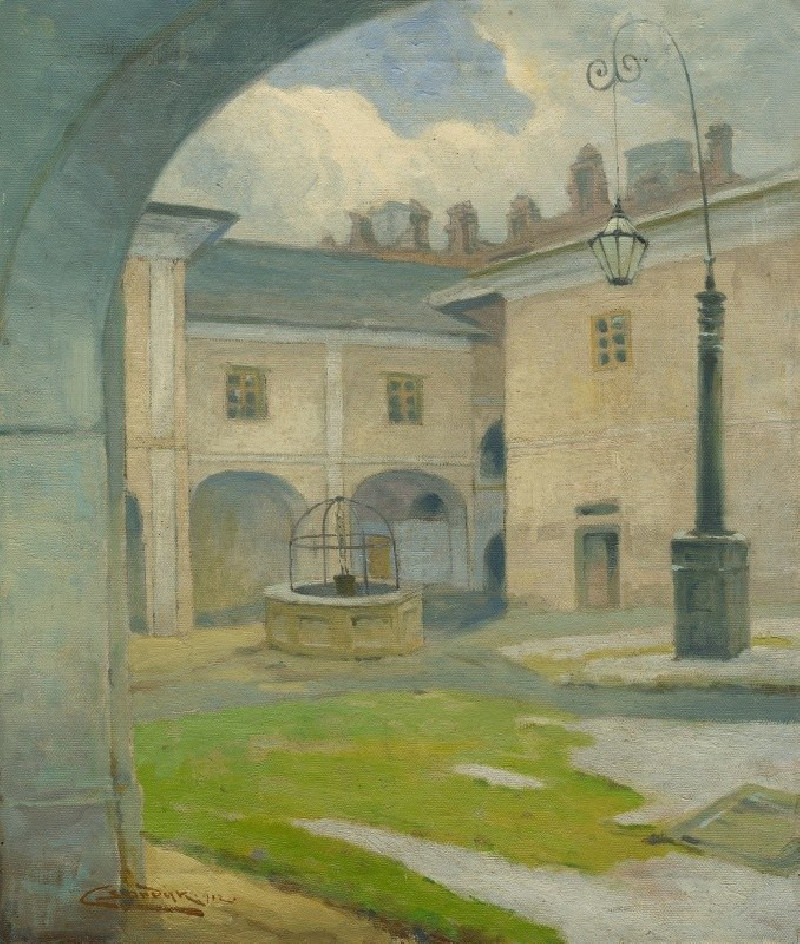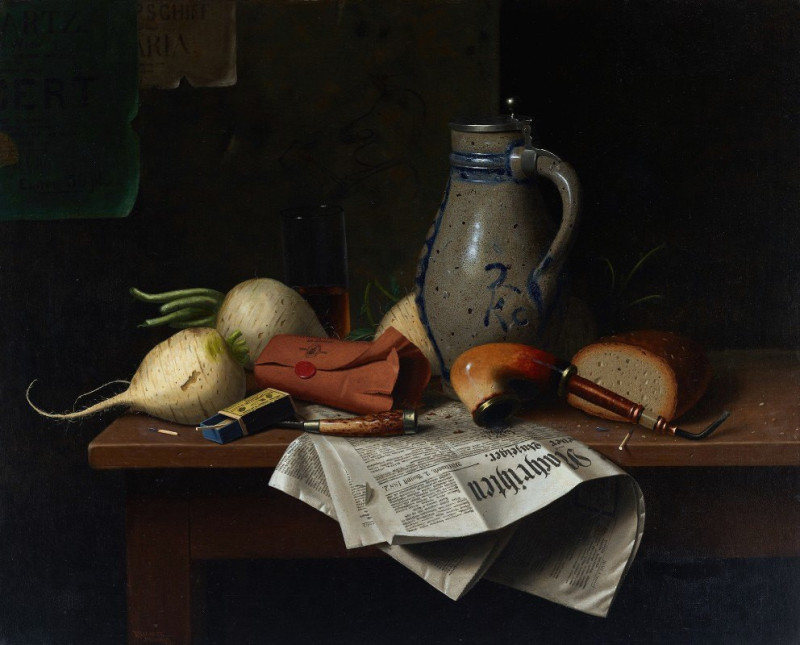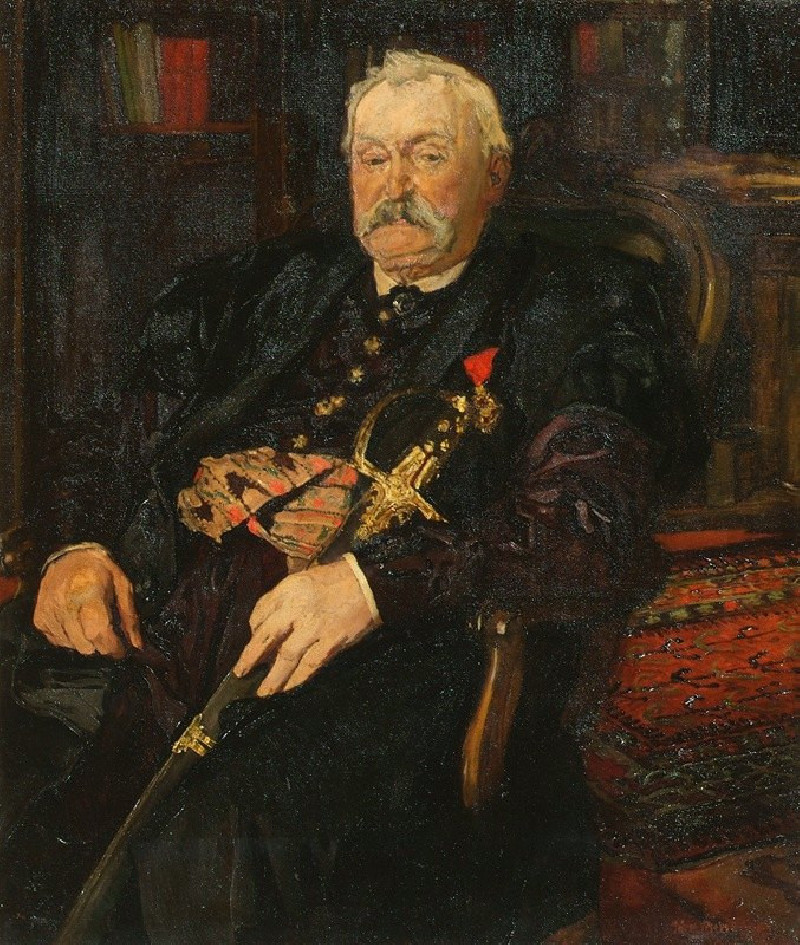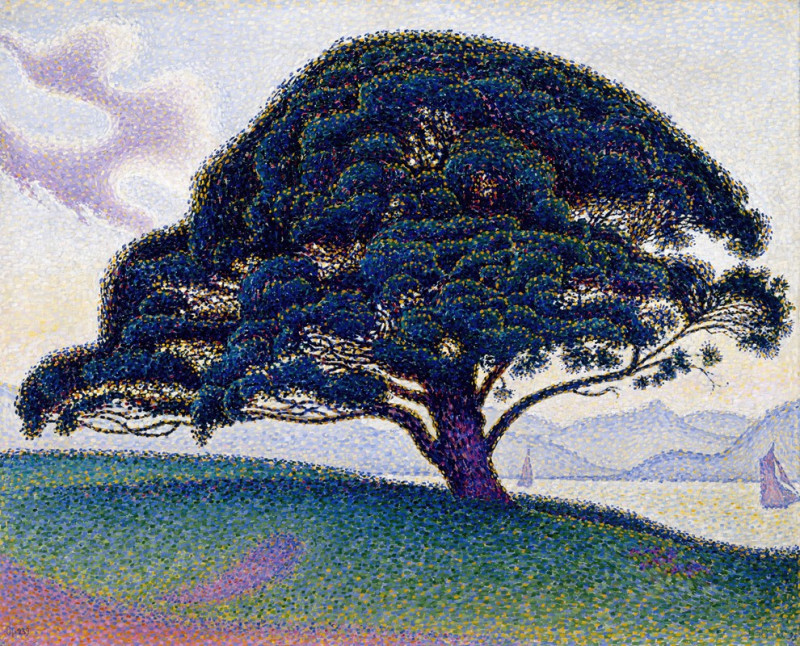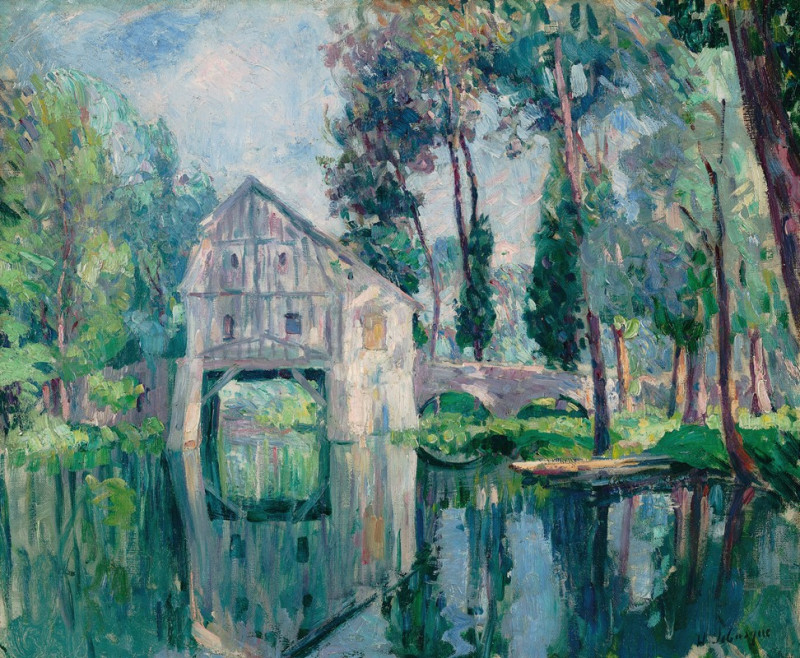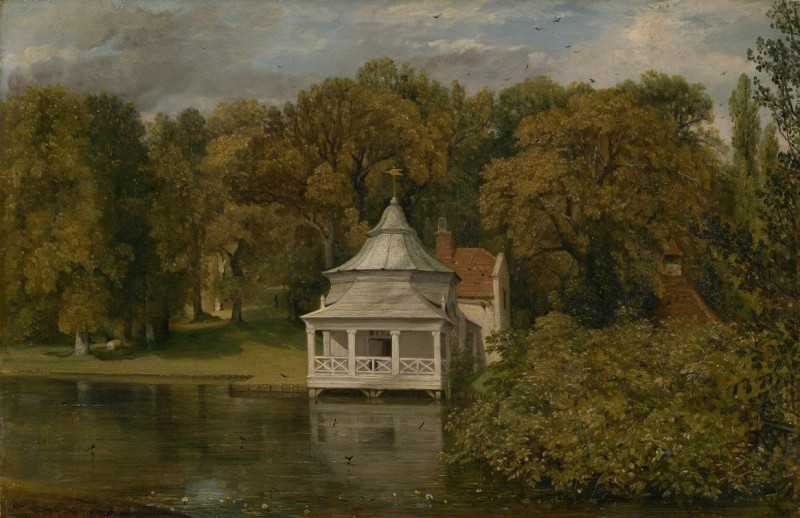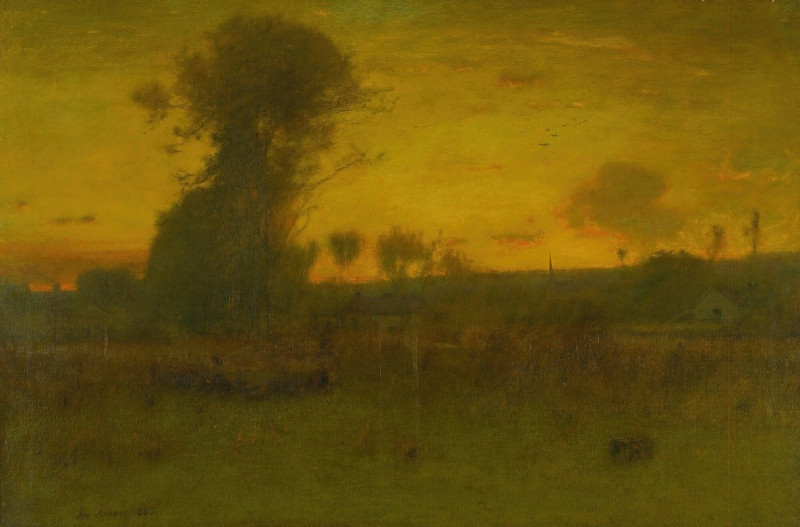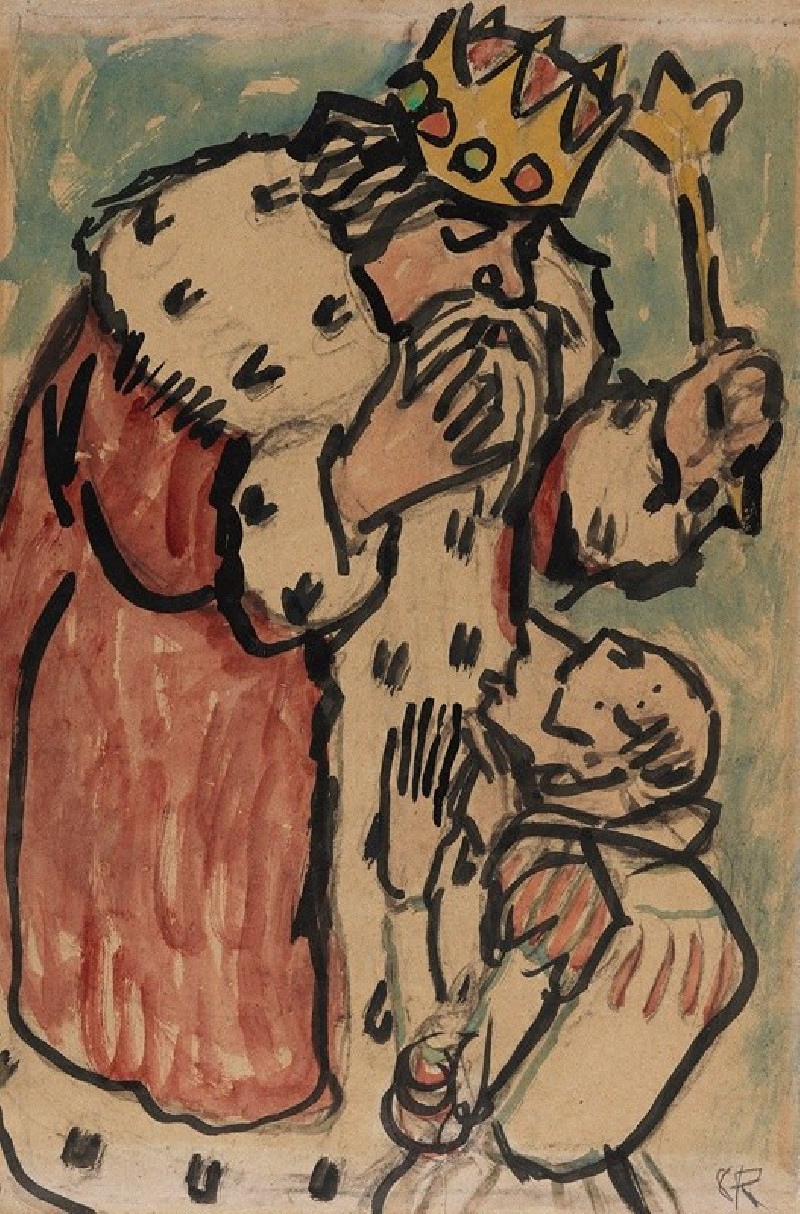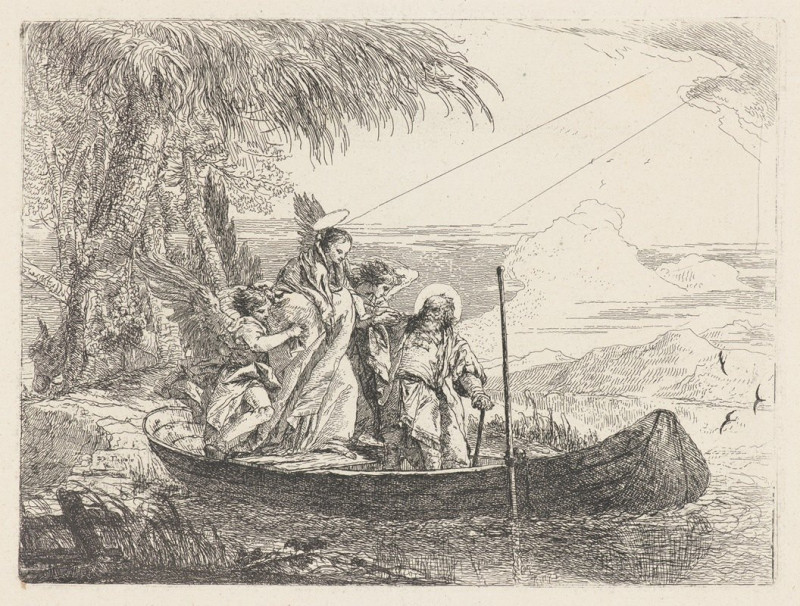Summer landscape with birches (1915)
Technique: Giclée quality print
Recommended by our customers
More about this artwork
"Summer Landscape with Birches" by Ľudovít Čordák, created in 1915, is an evocative painting that captures the serene and lush beauty of a summer day. This piece draws viewers into a vivid landscape filled with the vibrant life of nature during its most flourishing season.The painting features a scenery dominated by tall, slender birch trees that gracefully stretch toward the sky, their leaves painted with a lively blend of green and yellow hues, suggesting the gentle transition from summer to autumn. The soft brushstrokes create a sense of movement within the leaves, swaying with an unseen breeze.In the foreground, there is a subtle yet captivating depiction of a figure, perhaps a young woman, absorbed in the act of gathering twigs or flowers from the ground. This figure is rendered in soft, muted tones, merging harmoniously with the surrounding landscape yet standing out as a focal point of human presence within this natural setting.Beyond the trees and the figure, the background unfolds into a tranquil panorama of rolling hills and a peaceful water body, possibly a lake, that reflects the sky above. This backdrop is depicted with smoother, less detailed strokes, conveying the vastness and calmness of the distant landscape.Čordák's use of light and color in "Summer Landscape with Birches" not only emphasizes the beauty of the scene but also invokes a sense of timeless tranquility, inviting the viewer to pause and immerse themselves in the peacefulness of the moment captured on canvas.
Delivery
Returns
Ludwig Deutsch was an Austrian painter who settled in Paris and became a noted Orientalist artist.
Details of Ludwig Deutsch's life are obscure. He was born in Vienna in 1855 into a well-established Jewish family. His father Ignaz Deutsch was a financier at the Austrian court. He studied at the Vienna Academy of Fine Arts 1872–1875, then, in 1878, moved to Paris where he became strongly associated with Orientalism.



